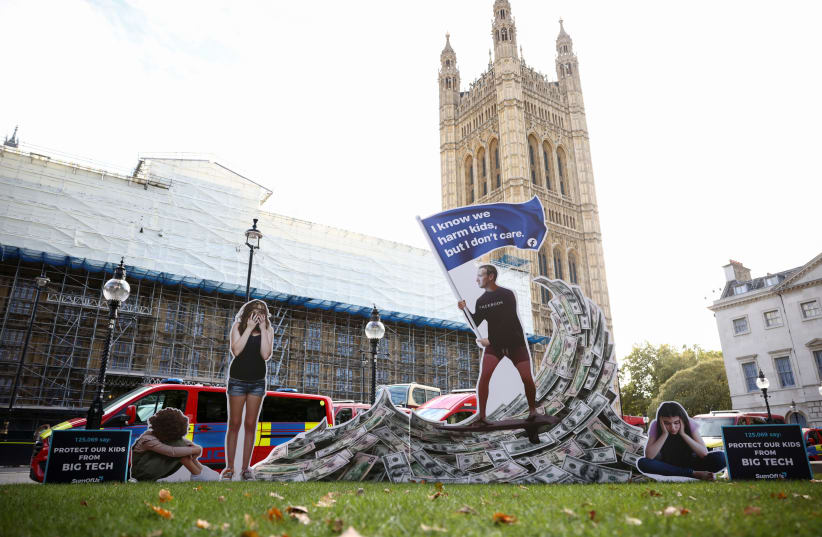Israel, it seems, is a social media mecca.
More than 90% of Israelis use WhatsApp at least twice a day, 85% are devoted to Facebook, and 76% are regular users of Instagram. That means most of us have been living in the uncomfortable zone of knowing but not really knowing that there is an inbuilt problem with social media.
However, in recent months the unknowing part of our consciousness has been given a wake-up call, partly as the result of revelations in the Wall Street Journal based on information supplied by a former Facebook employee.
By this time, most subscribers to Facebook must be aware that while it gets bad press, its offspring, Instagram, has very bad press. Starting with a hearing before the US Senate by Facebook founder Mark Zuckerberg on the company’s data privacy policy, more and more questions have been asked about the unregulated power of social media in general, and the questionable control of its content by Facebook in particular.
Acres of print and hours of airtime have been devoted to pointing out the absence of accountability demanded of the social media companies, alongside its global reach and potential influence to govern our lives, to affect political outcomes, and to disseminate inaccurate and harmful information. Worse than that is the evidence of the negative effect, especially of Instagram, on the mental health of young users.
A typical example of uncontrolled content is the racial abuse suffered by black athletes. Thirty percent of footballers in the current English Premier League are black. Week after week, they are subjected to racial slurs at the games, augmented by what follows online. It is a problem that has been around for many years, at times reaching a crescendo.
In April, four leading British football associations staged a four-day boycott of Facebook, Instagram and Twitter in protest at the absence of meaningful action by the companies concerned. It followed horrendous abuse and threats against three black players for Liverpool Football club. Representatives of the football authorities met with executives from the three companies, offering to help in identifying the perpetrators, and at the same time pressuring the government to introduce legislation requiring social media companies to take responsibility for what appears on their platforms.
Things came to a head when three black players failed to score in a penalty shoot-out in the final of the Euro Championship between Italy and England on July 11, so Italy won. The online onslaught against those players was so vitriolic that Facebook itself raised its racial abuse alarm to the highest level, yet still failed to block the most damaging content.
This time calls for action were heard. Governments in several countries, including Israel, have been moved to act, and parliamentary committees are preparing legislation to control online abuse and protect users from it.
The Knesset is likely to propose similar moves to those drafted for the Online Safety Bill in London, which include substantial fines for social media companies that fail to provide transparency on their methods of deciding content removal, and failing to improve verification processes to identify abusers
To be fair, Facebook and Twitter have introduced some reforms towards accountability, and Facebook has provided a tool known as Hidden Words to enable victims of abuse to delete offensive vocabulary. But it still begs the question of whose responsibility it is to monitor and obliterate the abuse before it reaches its target.
The good thing that results from the spotlight on social media is that all of us, the companies and the users, are more aware of the problems. Social media provide communications tools, and all tools have the potential to harm. Reducing the harm is largely in the hands of the companies themselves, but we users must be ready to encourage and support whatever controls governments may introduce, even at the cost of a certain restraint on our freedom of expression. ■
The writer is an author, former journalist and former head of the British Desk at the Jerusalem Foundation.

